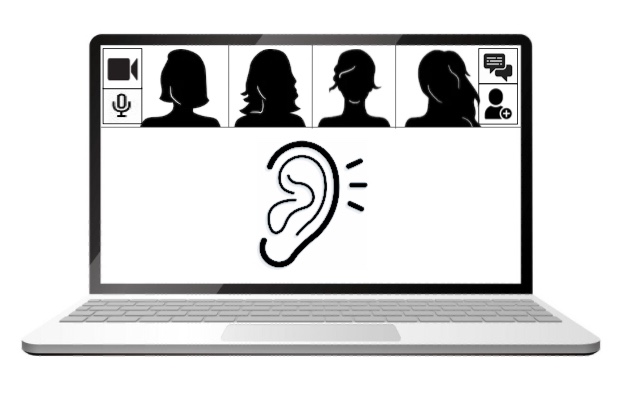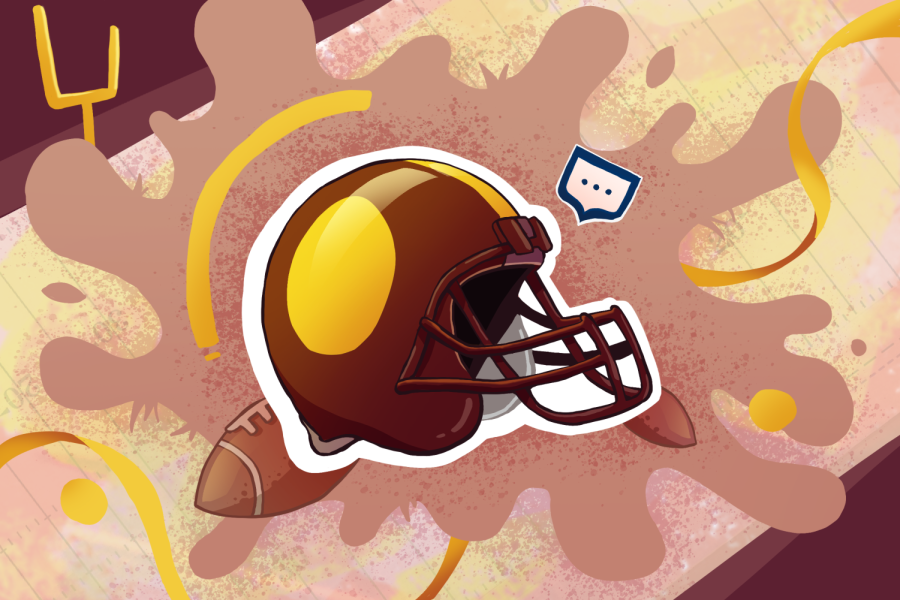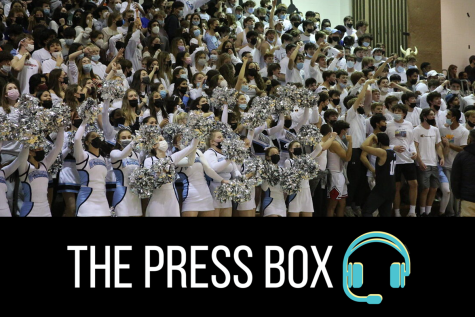Learning from questions
My experience representing MCPS in the 2020 Deaf and Hard of Hearing Academic Bowl
This year, I participated in an academic bowl for students who are deaf and hard of hearing. Though COVID-19 derailed the tournament a bit, the Montgomery County team still managed to win.
June 18, 2020
For the past couple of months, I’ve had about the same quarantine routine as everyone else; sleep in, stay in sweats and pajamas all day, watch tons of Netflix and Zoom with friends. But my quarantine schedule also included something different from most: I competed in the 2020 Deaf and Hard of Hearing Academic Bowl representing MCPS — and I definitely had to get dressed for that.
The Academic Bowl is a quiz contest — think of a cross between Jeopardy and 1950s game shows such as The $64,000 Question. Gallaudet University in DC, the world’s only university specifically for the deaf and hard of hearing, created the Academic Bowl competition in 1996 to attract students. Eighty high school teams across the country compete annually in regional competitions, culminating in the National finals at Gallaudet.
I had never heard of the Gallaudet Academic Bowl until my soon-to-be coach Sean Blake called my house repeatedly, asking me to join the MCPS team. While I have hearing loss, my entire universe had been in the hearing world, and I wasn’t sure I would be comfortable in a deaf environment. Plus, I intended to be busy. As a rising senior, I had college applications to write and plans to participate in Whitman Drama. I finally joined the team, if only to stop Mr. Blake from calling.
My three teammates were from other MCPS high schools. I didn’t expect them all to be women, and as it turned out we only met once. It was nice to identify with these girls over our struggles, though I remained used to being the only person in the room striving to hear. We practiced competition quizzes at 7 p.m. most Sundays, just when I should have been doing the homework I never did over the weekend. Now having glimpsed Gallaudet and deaf culture, I see a different part of myself.
Surprisingly, we qualified for the East Regionals in Buffalo, New York, scheduled to take place in March. But then the COVID-19 lockdown canceled the in-person contest, and our schools closed. I wasn’t bent out of shape about not seeing Buffalo in winter, but I was still upset.
The Gallaudet organizers soon came up with a new digital regional format to replace our Buffalo trip. The Nationals would take place in May, right in the middle of AP exams.
I didn’t care. I was still reeling from my senior year ending and the whole world falling apart. Our practices were still Sunday evenings, just before all my online assignments for the week were due at midnight — and I had little incentive to put aside Netflix.
Somehow, the competition eventually became a positive distraction from the state of the world. After doing well in the April digital regionals, we joined the 20 teams “going” to Nationals. Our mentality began to change; this tournament became something we could actually win.
The Nationals progressed over a week in May. During our quarterfinal qualifying match, we encouraged each other and laughed about how predictable we were, usually messing up the sports questions because we were all such big nerds. It was a whirlwind; we didn’t know when our next match would be until the night before. A match time was even moved around a conflict with an AP exam, my AP Literature and Composition exam to be exact. We made it to the semifinals, and then, to the Championship.
On May 14, I put on my team shirt at 2:50 p.m., grabbed some water and set up my desk in my room. Mr. Blake and our Assistant Coach, Mrs. Taylor, a Montgomery Blair High School American Sign Language teacher, texted encouragement. I tried to calm myself, knowing that if we lost we would get second place and that was pretty good for our first time participating.
Right from the start we missed questions. I fidgeted, checking the scoreboard in the top left corner of my screen, unsure how we stood. With some timely advice from our coaches between rounds, we hit our stride. Our final score was 82, our highest ever. We didn’t know if we had won, however, because our digital match was separate from our opponent’s. The judges said that a results video would be live-streamed two days later on Facebook.
That Saturday night, my family and I waited out the entire third place match and sat down to a late dinner during the Championship, with my laptop on the table. My friends watched from their homes. The opposition led most of the way, but in the third round, we turned a corner and leaped ahead by four points. With two questions to go, our team group chat blew up as we realized that the other side couldn’t win.
My family ate dessert while I celebrated virtually with my teammates. We all wondered what it would’ve been like if we had had an in-person competition. Would we have made it this far? Would we have jumped up and down hugging each other? Would we have become better friends if we had gone to Buffalo together?
Still, I treasured my digital bond with my all-female team. We were part of a competitive high school world and we all had hearing loss, but we weren’t deaf. Our team was in the middle, because we didn’t sign either. When I first met my coach Mr. Blake, I was disoriented because he had two ASL interpreters to translate. Now having glimpsed Gallaudet and deaf culture, I see a different part of myself. I feel drawn to both the hearing loss and the deaf communities, and I want to study sign language.
Our senior spring was ruined, but I’m glad I had at least one good reason to get dressed every morning. I answered tons of questions, but what I’ve learned will stay with me long after our quarantine ends.







Louise Colodzin • Jun 18, 2020 at 2:15 pm
What an outstanding article. It is humerous and revealing of a real and wonderful learning experience. Learning about another world that is different and yet the same. Learning that she could be part of both the hearing world and deaf/hard-of-hearing world. That both worlds are the same but accessed in different ways. Kudos to the author!